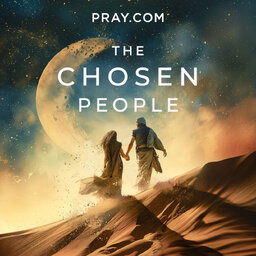Joseph: The Son of Israel
# 59 - Joseph: The Son of Israel - In this episode of The Chosen People with Yael Eckstein, Jacob's joy erupts when he learns that Joseph, his long-lost son, is alive and reigning in Egypt. Journey with us through themes of forgiveness, divine provision, and the unshakable hope that transforms mourning into dancing.
Episode 59 of The Chosen People with Yael Eckstein is inspired by the Book of Genesis.
Sign up for The Chosen People devotionals at https://www.thechosenpeople.com/sign-up
For more information about Yael Eckstein and IFCJ visit https://www.ifcj.org/
Today's opening prayer is inspired by Jeremiah 29:11, “‘For I know the thoughts that I think toward you,’ says The Lord, ‘thoughts of peace, and not of evil, to give you hope and a fut ure.’”
Listen to some of the greatest Bible stories ever told and make prayer a priority in your life by downloading the Pray.com app.
Show Notes:
(02:20) Intro with Yael Eckstein
(03:40) Joseph: The Son of Israel
(20:15) Reflection with Yael Eckstein
 The Chosen People
The Chosen People


